
Urgent demands from practice
Currently, the arrangement of the land registration office system is expected to create positive effects. One of the recent notable proposals comes from the Ho Chi Minh City Institute of Natural Resources and Environmental Economics (IEER). The Institute has sent a proposal to the Prime Minister, the Ministry of Home Affairs, the Department of Land Management, the Ministry of Agriculture and Environment , proposing two options for arranging the provincial land registration office system to be consistent with the 2-level local government structure, in the spirit of the 2024 Land Law.
In the first option, IEER Institute proposed separating two functional groups: Technical resource functions continue to be undertaken by the Provincial Land Registration Office, while administrative functions related to land are decentralized to local authorities.
Specifically, the Provincial Land Registration Office operates as a completely autonomous public service unit, performing technical tasks and arranging facilities to receive technical documents according to the population density of each area. Existing branches are rearranged to be closer to the people, but do not use budget funds to ensure autonomy and responsibility in providing public services.
Commune level is assigned the task of land management such as issuing first certificates, receiving and editing information, reviewing and approving changes in land use purposes, receiving documents related to land use rights... The Institute believes that this plan creates a clear division of labor, suitable for management practices at the grassroots level.
The second option, proposed by IEER, is for the provincial Land Registration Office to become the sole focal point to receive and process all land-related procedures, including the issuance of first-time certificates.
Accordingly, the commune level only performs coordination tasks such as site clearance, land allocation or lease or land use conversion within the scope of decentralization.
This plan is proposed based on the calculation of the specialized nature of the Natural Resources sector, limiting the risk of large costs arising if the task is transferred to the grassroots level, because for 3,321 commune-level administrative units nationwide to undertake technical natural resources tasks, it will require huge investments in infrastructure, human resources and regular funding.
Some localities believe that transferring some of the authority of the land registration office branch to the commune level can help people more conveniently carry out land procedures. In fact, some types of work such as land division, correction, issuance and exchange of land use right certificates, etc., must still be examined by the commune level before being transferred to the Land Registration Office to complete the documents, causing the process to be prolonged and people to have to travel to many places.
Vice Chairman of Phuong Duc Commune People's Committee Nguyen Huu Khoa suggested that procedures related to determining land origin, limits, correcting land use right certificates, etc. should be assigned to the commune level to unify and ensure the "one level, one agency" process.
Sharing the same view, Vice Chairman of Ung Thien Commune People's Committee Nguyen Anh Tuan expressed his opinion that when these functions are transferred to the commune level, people only need to work at the commune's "one-stop" department, which is both transparent and shortens the time to process documents...
On the people's side, Mr. Nguyen Cong Toan (Yen Bai commune) and Ms. Anh Phuong (Duong Noi ward) said that the commune level has a clear understanding of the area and each case, so the handling will be quick and realistic, avoiding the situation of "going around in circles, causing suffering for the people", reducing overload and backlog of documents...
Reasonable hierarchy to avoid overlap and overload
From the perspective of state management, Deputy Director of the Department of Land Management (Ministry of Agriculture and Environment) Mai Van Phan said that the current model of a single-level land registration office under the department is basically operating effectively, in line with the requirements of streamlining the apparatus and expanding the socialization of public services. The organization of branches by region in recent times has helped reduce the dispersion of authority, overcoming the overlap between the initial legal establishment stage and the stage of implementing land users' rights.
Currently, more than 80% of land registration office branches are financially autonomous. If all activities are transferred to the commune, operating costs, salaries, and allowances will have to be taken from the budget, creating great pressure. Therefore, the transfer of authority needs to be carefully calculated, based on the principle of not disrupting existing activities, not creating new overlaps, and in accordance with the roadmap for arranging public service units according to the requirements of the Central and Government in the 2-level local government model.
In addition, land data has been decentralized to more than 2,300 commune-level administrative units; the remaining units are continuing to improve infrastructure and train human resources. When data is synchronized and transparent, decentralizing some procedures to the grassroots level will be more convenient, ensuring "the right person, the right job, the right authority". The ultimate goal is to build a unified, modern land management system that serves people quickly but still maintains the principles of streamlining and efficiency.
Regarding the requirement to clearly define functions, according to Professor Dang Hung Vo (former Deputy Minister of Natural Resources and Environment), for services that can be charged, businesses or public service units that do well should be assigned to them to reduce the burden on state agencies. For legal tasks, ensuring the safety and rights of the people, it is necessary to assign them to the grassroots government, because "commune level is closer to the people, understands the land, and handles matters more promptly"...
In my opinion, reorganizing the land registration office system according to the 2-level local government model is an objective need, stemming from the demands of modern life and management. However, all adjustments need to start from a comprehensive assessment, have a roadmap, and avoid overlapping functions and tasks in order to achieve the set goals effectively.
Director of the Institute of Natural Resources and Environment Economics of Ho Chi Minh City Pham Viet Thuan:
Need for unified and centralized operations
Maintaining the model of the Provincial Land Registration Office and its branches is still the most suitable option. Currently, land registration activities are of a special nature, requiring high technical capacity, so the system needs to be operated in a unified and centralized manner, avoiding the situation of dispersing tasks to government levels that do not have sufficient infrastructure, human resources and expertise.
Adjusting functions or transferring technical tasks down to the commune level can only be done when ensuring synchronization of four factors: Digital infrastructure, land administration human resources, coordination regulations and data management capacity according to national standards.
In the long term, land data, especially plot boundaries and maps, must be standardized to serve the data exchange as directed by the Prime Minister...
Deputy Head of Economic Department of Hoa Xa Commune Nguyen Hong Diep:
Fast, accurate processing right on site
The implementation of the 2-level local government model in recent times has shown clear effectiveness in resolving land records. With a government network close to the people, the communal land administration team has a firm grasp of the origin of each plot of land, so procedures related to verification, origin examination, error correction, issuance, re-issuance of certificates or plot division can all be handled quickly and accurately right at the grassroots level.
In fact, most of the steps of these procedures require returning to the locality to get confirmation, even though the documents are submitted at the Land Registration Office. This wastes people's time and creates an unnecessary intermediary.
Therefore, the process of rearranging the land registration system needs to move towards stronger decentralization to the commune level for routine management procedures that do not incur fees or charges to facilitate people.
Mr. Tran Van Hien, Luu Thuong village, Phuong Duc commune:
Hope for transparent procedures and a clear focal point
I think the most important requirement now is to reorganize the system in a regional direction, with easy access and clear responsibilities.
Accordingly, all procedures related to the purchase, sale, transfer, donation, correction or change of land of the people must be received directly at the Land Registration Office. When the documents are processed by the Land Registration Office, this agency must be the initial recipient, provide full guidance, update progress and return final results.
Separating the steps for an intermediary unit to receive not only increases the risk of shirking responsibility, but also makes people not know which agency is directly processing the application. A procedure that goes through too many doors only causes people more trouble, costs service fees, and prolongs time. When digital data, processing procedures and responsibilities are transparent at one point, people will feel more secure when carrying out important legal transactions related to family assets. People just want transparent procedures, a clear point, submit once and receive results on time...
Son Tung recorded
Source: https://hanoimoi.vn/chuyen-chi-nhanh-van-phong-dang-ky-dat-dai-ve-cap-xa-can-phu-hop-thuc-tien-724335.html






![[Photo] Prime Minister concludes trip to attend G20 Summit in South Africa](/_next/image?url=https%3A%2F%2Fvphoto.vietnam.vn%2Fthumb%2F1200x675%2Fvietnam%2Fresource%2FIMAGE%2F2025%2F11%2F24%2F1763944494358_vna-potal-thu-tuong-ket-thuc-chuyen-tham-du-hoi-nghi-thuong-dinh-g20-tai-nam-phi-8428321-4810-jpg.webp&w=3840&q=75)





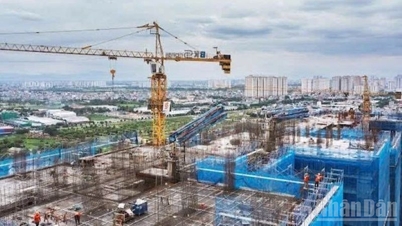





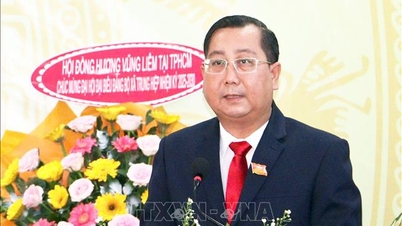

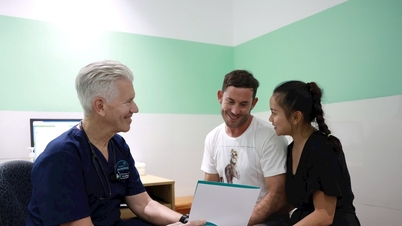

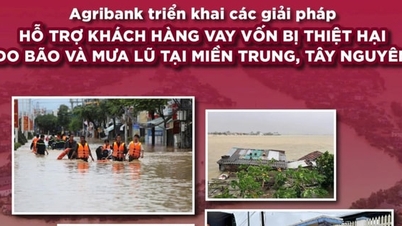
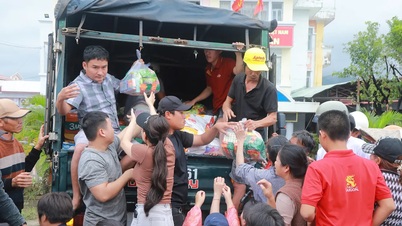

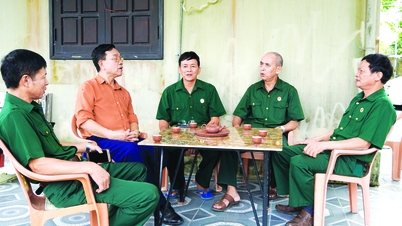

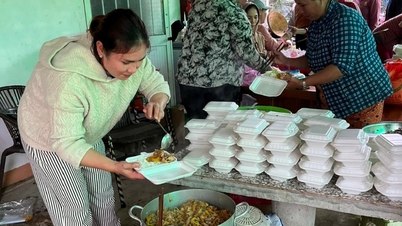







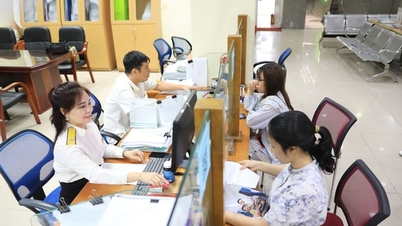


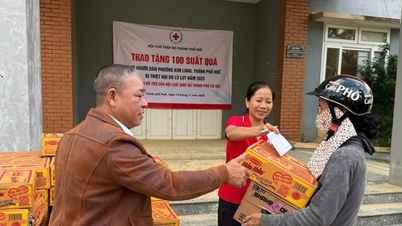
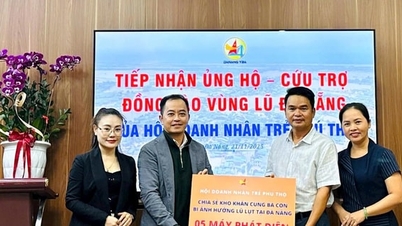


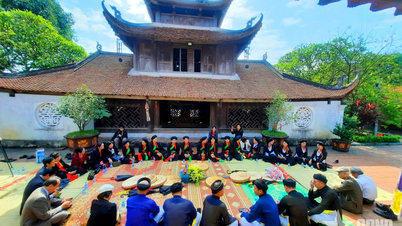

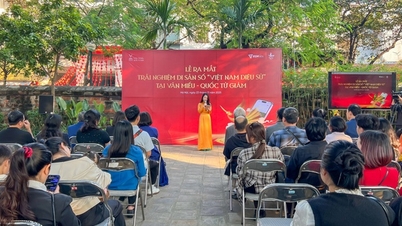

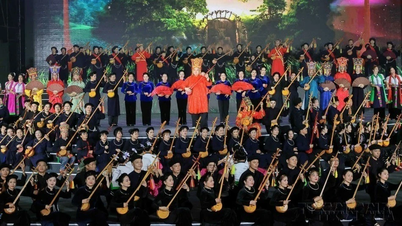






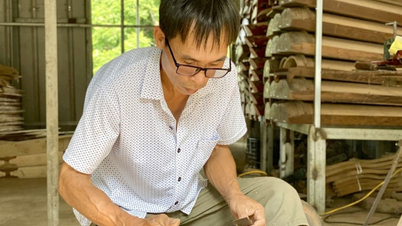




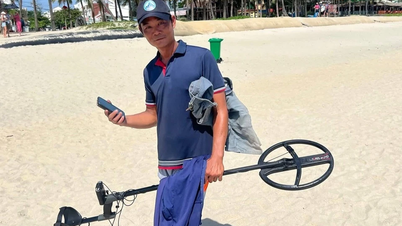


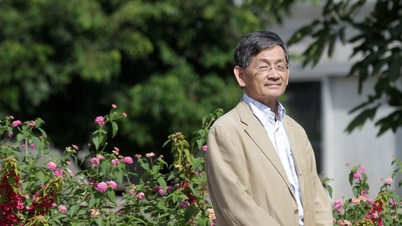
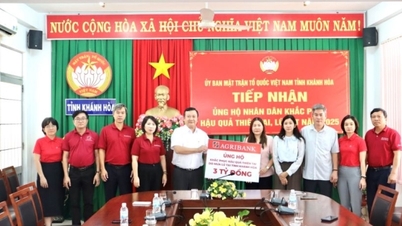

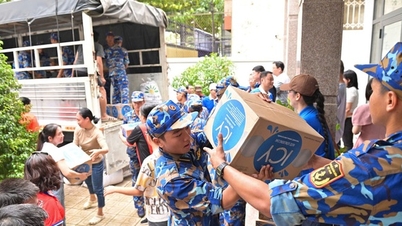



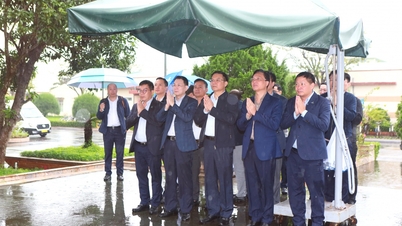
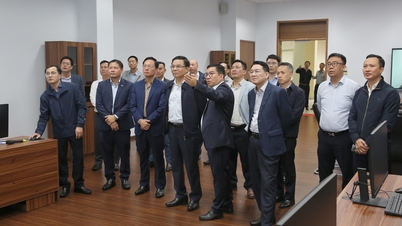










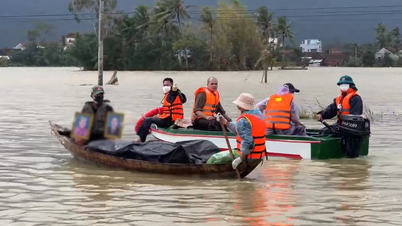





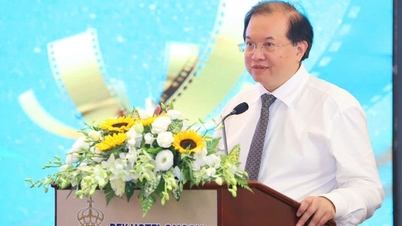
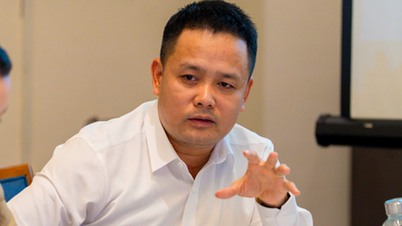
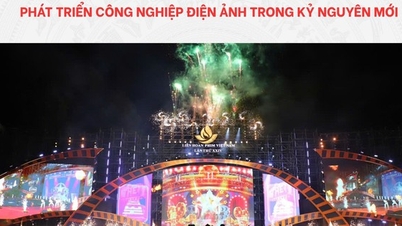
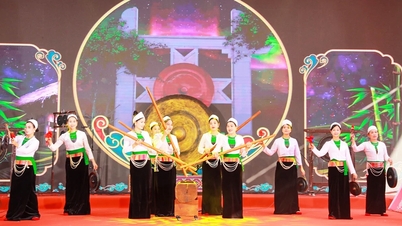



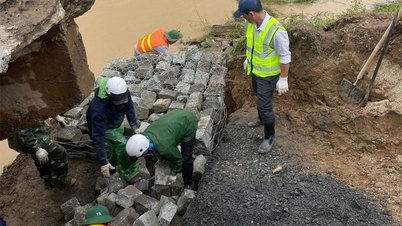













Comment (0)